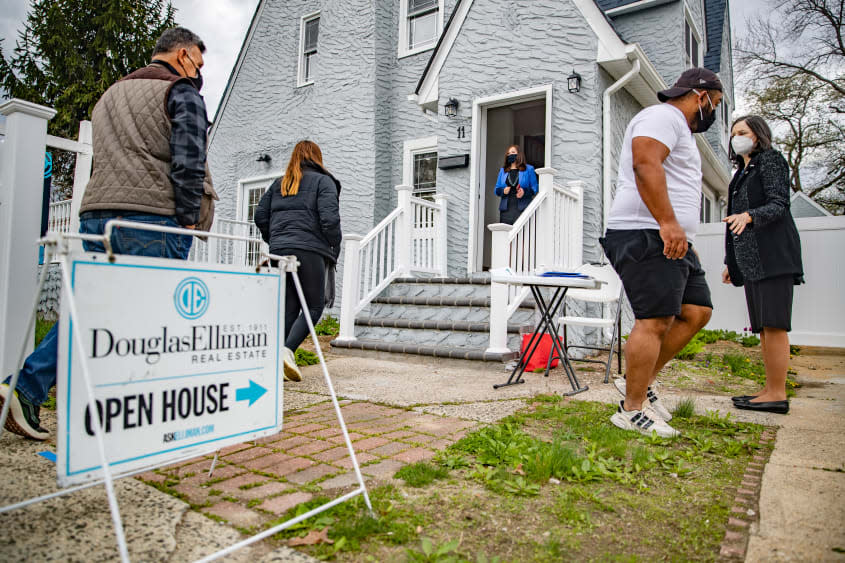Housing: Will rising mortgage rates end the boom?

The smartest insight and analysis, from all perspectives, rounded up from around the web:
Surging mortgage rates are starting to test the resilience of "the gravity-defying pandemic housing boom," said Conor Dougherty and Jeanna Smialek in The New York Times. The average interest rate on a 30-year fixed mortgage tipped beyond 5 percent last week for the first time since 2011, a nearly 2-percentage-point increase from where rates stood at the beginning of the year. "Open houses have thinned. Online searches for homes have dropped." And cancellations of new home constructions are inching up, concerning builders. "By any standard that prevailed before 2020, this would still be a hot real estate market." Most homes are still selling within a week of being listed, and prices remain at record highs — up 30 percent over the past two years. But as higher rates strain buyers' budgets, more home seekers may finally be exhausted.
Homebuyers aren't the only ones feeling pinched, said Ken Sweet in The Associated Press. Four big banks reported "noticeable declines in their first-quarter profits" due in large part to rising rates, which meant "fewer people sought to get a new mortgage or refinance." Revenues from mortgage originations at JPMorgan Chase and Wells Fargo were down 37 percent and 33 percent, respectively, from a year earlier, when mortgage rates were roughly half of where they stand now.
The good news is that rising rates and the end of the pandemic should return some sanity to the zanier markets, said Jonathan Levin in Bloomberg. Boise, Idaho, for instance, became "one of the hottest markets in the U.S." as the "pandemic work-from-anywhere revolution" convinced wealthy Californians and New Yorkers to flee their high-tax states and get more bang for their buck. Markets like Phoenix, Tampa, and Austin also "compressed a decade's worth of home price appreciation into a couple of years." The double whammy of high mortgage rates and high home prices means "the typical American household would now have to spend 31 percent of their monthly income to make a mortgage payment on the average-priced U.S. home," said Lance Lambert in Fortune. That puts housing at its least affordable level since 2007, when a mortgage crash spiraled into an economic emergency. But household balance sheets are healthier than they were in 2007, and so far "you'd be hard-pressed to find housing economists" predicting a repeat of that crisis.
"The red-hot market has remained resistant to rising mortgage rates," said The Economist, but resistant "does not mean impervious." Housing prices have remained high because of limited supply, a circumstance that is largely "an artifact of the pandemic." Now, 1.6 million homes are under construction, the most since the 1970s and more than twice the number of homes for sale at the end of last year. Soon, the combination of all this new construction and higher interest rates "could move America from a property shortage into a glut." That's a perfect illustration of the shoals that the entire U.S. economy must navigate, "with rampant inflation on one side and a bust on the other."
This article was first published in the latest issue of The Week magazine. If you want to read more like it, you can try six risk-free issues of the magazine here.
You may also like
Bill Murray movie suspends production after he's reportedly accused of 'inappropriate behavior'

